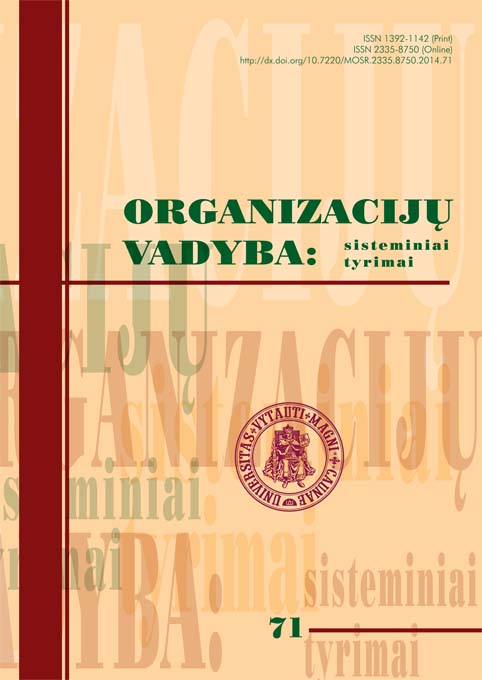Ekonomisto profesija: žinių, veiklos ir kompetencijų dimensijos
Economics profession: dimensions of knowledge, activities and competence
Author(s): Rasa BalvočiūtėSubject(s): Economy
Published by: Vytauto Didžiojo Universitetas
Keywords: Economics profession; Professional economist activity; Economic activities; Professional competence; Ekonomisto profesija; Ekonomisto profesinė veikla Economics profession; Professional economist activity; Economic activities; Professional competence
Summary/Abstract: The paper presents a study the aim of which is to perform a comparative analysis of professional economist’s activities in various countries and to distinguish the essential features of the professional economist. It was observed that development of professional economists’ in various countries has had a significant influence on the formation of this profession in Lithuania. Dominant professional activities, focused on the fulfilment of administrative and technical tasks, applying of some specific analysis methods, and at the same time, the importance of procedural knowledge and skills approves that this profession is becoming more “technocratic” i. e. functionalistic. However, that is one part of the professions “image”, which is the most noticeable. The other one is difficult to be identified and much less obvious, since it “comes out” of the profession framework. Economic knowledge and skills are important for other (not only for related) professional activities as well as making important decisions about company’s management and development. It should be noted that this is usually the highest level (of abstraction, evaluation, synthesis, etc.), basically, new knowledge skills. These skills can never be measured by summing trained or employed professional economists; this is a qualitative indicator of preparedness activities, which, as competency may be determined by an assessment of past performance. However, while economic activity is understood as a process only for certain purposes – to sell, produce, and so on, but not as efficient activity, economic knowledge and skills appears to be hidden under the procedural point of view, the “right” activities. Lithuanian higher education faces with challenges in preparing economists for their professional activities. The fact that the labor market shows the decrease of economists job places does not prove that such professionals are less needed, it just might be that the competent professionals are increasingly working as the heads of enterprises, services, and their departments, set up their own businesses or work in less skilled work. Moreover, the increasing competition, emerging new problems such as environmental pollution, resource limitations, social tensions still require new, more sophisticated economic knowledge and skills to solve them, which together with other areas of knowledge and skills will be the future of professional competence. Straipsnyje analizuojami ekonomisto profesijos raidos ypatumai įvairiose šalyse ir jos įtaka šiuolaikinei šios profesijos sampratai. Nustatyta, kad ekonomisto profesijos formavimuisi įtaką darė subjektyvūs ir objektyvūs veiksniai bei praktinės veiklos kaita, kuri iš esmės ir lėmė tai, kad profesijos „svoris“ ne sumažėjo, bet persikėlė nuo veiklos funkcijų atlikimo prie tam tikrų specifinių gebėjimų veikti efektyviai. Ekonominių žinių, kompetencijų kaip intelektinio kapitalo įgijimas tampa vis svarbesnis, kuriant naujas žinias kitoms profesinėms veikloms
Journal: Organizacijų vadyba: sisteminiai tyrimai
- Issue Year: 2014
- Issue No: 71
- Page Range: 33-52
- Page Count: 20
- Language: Lithuanian

